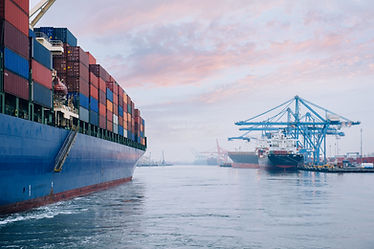Rehiring Retired Workers to Fill A Talent Need is Happening (But what about Maritime Public Safety,
- Mark DuPont
- Mar 18, 2019
- 2 min read

In 2017, and again in late 2018, Boeing rehired its retired workers to fill a critical gap in their production lines. (See Reuters story here.) The reason that this step was necessary, is the same for organizations all across the country... and for maritime public safety departments and agencies in particular (as previously reported in the White Paper: Navigating the Changing Seascape of Maritime Public Safety,) as well as maritime manufacturers (as discussed in the IBEX Webinar, Training the Maritime Workforce: How to Keep Up with the Changing Tide.)
Just like Elvis, institutional knowledge has "left the building," as retirements in this sector has accelerated, and therefore, you need to find a way to tap into that valuable resource and bring them back.
As reported in the January 2019 issue of TD Magazine published by the Association for Talent Development, this should be no surprise. People are living longer now than ever before, according to the World Bank. The average life expectancy across the world has risen from 53 years in 1960 to 72 years in 2015—and it will continue to increase by 1.5 years per decade. (A detailed report by the UN can be found here.) Combine that with declining birth rates, and the reality is clear: the workforce is getting considerably older as the pool of young new workers is shrinking.
So what do you do? How should leaders of public safety agencies and manufacturers, especially in the maritime domain, look at this and react? It's already happening, and you need to pay attention to what is going on all around you. According to a Transamerica Center for Retirement Studies report, Baby Boomer Workers Are Revolutionizing Retirement: Are They and Their Employers Ready?, more than 80 percent of U.S. employers believe that workers ages 50 and older are "a valuable resource for training and mentoring," "an important source of institutional knowledge," and offer "more knowledge, wisdom, and life experience." That should all sound very familiar, given the white papers and webinars we've released and talked about at the National Maritime Law Enforcement Academy (NMLEA).
Put very simply, the retired workforce could provide critical and essential help to maritime patrol departments, natural resource agencies and boat manufacturers of all shapes and sizes. Especially those organizations that have a relatively "new" staff that lack the depth of knowledge and experience to perform certain tasks and in critical areas of responsibility.
As an example of ways to tap into this extensive and far reaching pool of resources, the NMLEA's FLEATS Program now provides agencies with retired and experienced professionals to help leaders manage things like Fleet Life Cycle Management; Equipment Design; Product Evaluation, Acquisition, Assessment, and Testing; Operational Training and Performance Sustainment Services. This allows agencies to get that institutional knowledge and guidance at a fraction of the cost and time it would take otherwise.
All of our partners, inside and outside the maritime domain, should be looking at the makeup of the new workforce, and develop ways to minimize the risk while enhancing the impacts on the future. Using the retired workforce as part of the new workforce for training, mentoring and consultation can make an immediate impact, and help face the challenges of the future.
To discuss this in greater detail, contact us at info@nmlea.org.






Comments